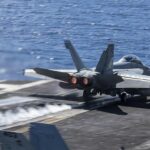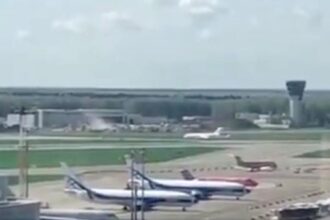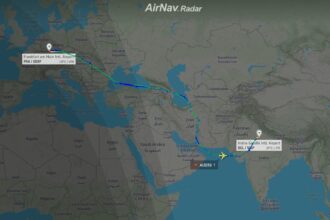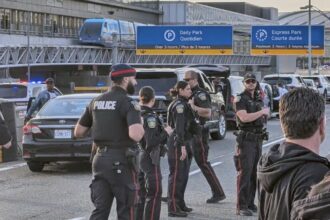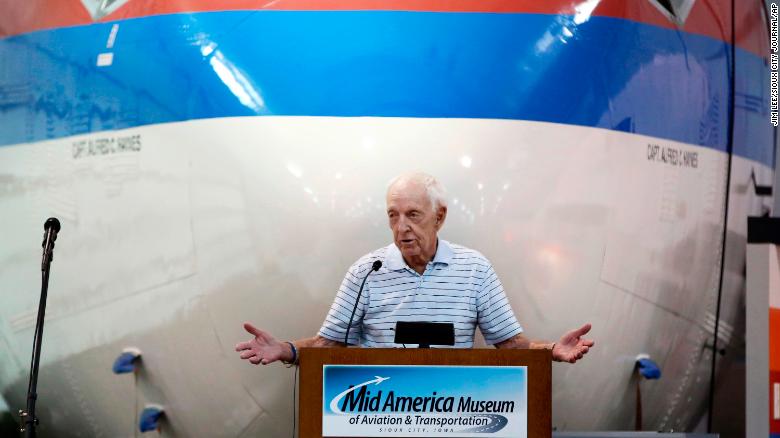
Al Haynes, the Captain of United 232, has died.
United 232 was a Denver-Chicago flight on July 19 1989. The tail mounted number 2 engine suffered a catastrophic failure while flying over Iowa. The failure took out all of the DC-10’s hydraulic lines. The crew managed to control the aircraft using asymmetrical thrust. The crew decided to make an emergency landing at Sioux City Airport. Due to the damage to the hydraulics and flight controls the crew could only make right hand turns.
On landing the right wing hit the ground, sheared off and caused the plane to what witnesses describe as cartwheel through a corn field. 184 of the 296 onboard survived the crash.
Captain Haynes efforts were lauded at the time. He told The Journal in 2010, “the captain gets all the credit, like a quarterback on a football team who won the big game. But, it’s a team effort. That’s what I stress.” In the same interview he admited he felt guilty over the loss of life.
Since the crash Captain Haynes had been working to make aviation safer, including speaking at conferences around the world. “You can’t get over any type of trauma or tragedy without talking about it. I have given over 1,500 talks and it has helped me accept what has happened,” he said in the 2010 interview. Captain Hayes donated the money he made from speaking engagements, and set up scholarships for children of crew members who died in the crash, and students in Sioux City who wanted to get into health services.
The Woodbury County, Iowa, emergency directer Gary Brown, who became great friends with Captain Haynes, told the Sioux City Journal, “He was the most humble man I’ve ever met in my life,” and that he never forgot those that died in the crash. Mr Brown also told KTIV, “Al did not like the name ‘hero’ associated with Al Haynes. He never saw himself as a hero. Anytime he talked about what went on that day, he talked about his entire crew. He talked about the flight attendants. He talked about the passengers doing what they needed to do, and the emergency responders, and the whole community coming together. Al was a very humble captain. He was a very humble individual. He loved his family. He loved his community. He loved his job. The United Flight 232 crew became a family of his”
Captain Haynes was born in Paris, Texas but raised in Dallas and attended Texas A&M. He entered the Naval Aviation Cadet Training program in 1952. He then started working for United in 1956. He retired in 1991.
In 1997 Captain Hayes eldest son died in motorcycle crash. In 1999 his wife died from an infection. In 2003 a fundraising effort from family and friends, including passengers that were on United 232, raised $550 000 to pay for a bone marrow transplant for his daughter.
He also volunteered as a Little League baseball umpire and high school football announcer in Seattle, where he lived.
Other crew members on that flight were First Officer William Records, and Second Officer Dudley Dvorak. Check pilot Captain Dennis Fitch was a passenger onboard and became the fourth member of the crew when he offered to assist in the emergency.
The National Air Traffic Controllers Association said Captain Haynes “will forever fondly be remembered for a career of professionalism, training, and superior airmanship.” United said, “We thank him for his service throughout his career at United and for his exceptional efforts aboard Flight UA232 on July 19, 1989. His legacy will endure.”
United 232 was the subject of:
- an episode of Air Crash Investigations aka Mayday
- made for tv movie Crash Landing: The Rescue of United 232 aka A Thousand Heroes
- an episode of Engineering Disasters
- an episode of Seconds From Disaster
- an episode of Survival in the Sky
- an episode of I Survived
- an episode of Why Planes Crash
Captain Haynes died 25 August 2019 in Tacoma at the age of 87, days shy of his 88th birthday.
Full NATCA Statement:
WASHINGTON – Members of the National Air Traffic Controllers Association (NATCA) join with the aviation community today in mourning the passing of Capt. Al Haynes, who will forever fondly be remembered for a career of professionalism, training, and superior airmanship. Thirty years ago last month – July 19, 1989, United Flight 232 piloted by Haynes departed Denver en route to Chicago. Sixty-seven minutes into the flight, he notified air traffic controllers that the number two engine had failed, and the aircraft was only marginally controllable. During the ensuing emergency landing at Sioux City, Iowa, 184 of the 296 passengers survived.
For the next 25 years, Haynes gave nearly 2,000 presentations about United Flight 232, including at NATCA’s Communicating For Safety (CFS) conference in 2016. His goal was always to educate other pilots, air traffic controllers, flight attendants, emergency crews, and emergency planners. When talking about the incident, Haynes commended his crew, air traffic control, and ground units in their execution of emergency procedures and maneuvers. He also commended the cooperation between all parties involved throughout the emergency. This story that Haynes recounted remains profoundly inspiring and valuable as a teaching tool in the areas of aviation safety, training, and Critical Incident Stress Management (CISM).
About Haynes, NATCA President Paul Rinaldi said. “NATCA looks to examples of exceptionalism in aviation, like Capt. Haynes lived and taught, to provide a standard for us to strive toward. We are deeply saddened by his passing, but profoundly grateful for his career of service to aviation safety. Our Union believes that every day is a training day, and we will continue to remember how Capt. Haynes and others made a big difference in the survival rate during that flight 30 years ago.”
Full United statement:
Today, we honor Captain Al Haynes who died Sunday at the age of 87 years old in Seattle. Captain Haynes was one of the pilots credited with saving 184 lives when United Flight 232 crashed at Sioux City, Iowa in 1989.
One hundred twelve of the 296 people on board died as a result of the crash, including Flight Attendant Rene Le Beau, who was working the flight. But the actions of the flight and inflight crews, air traffic control representatives, local officials and first responders that day saved many lives.
“The United family bids farewell to one of our greatest, and a legend in aviation,” said Oscar Munoz, CEO, United Airlines. “Thirty years since he helped save 184 lives, Captain Al Haynes’ name remains synonymous with skill and grace under pressure. His more than three decades of service, as well as his dedication as a mentor, ensures his legacy will live on in generations of aviators he taught and inspired. The United family was blessed to have had him on board – on that fateful day and every day he served with us. Godspeed, Al.”
“He made the impossible possible,” said Jan Brown, the retired flight attendant working in the lead position on Flight 232 the day of the crash. She described the moment she opened the door to the flight deck: “It was as palpable as the blast of heat from a furnace, how the enormity of the crisis hit me. Part of my brain froze. Al didn’t even turn around, just told me what I needed to know. He saved my life and so many lives. Bless his heart forever.”
“Having a drill, having a plan, and taking it seriously, and working on it, is very, very important,” Captain Haynes said, in a presentation he made to the NASA Ames Research Center in Edwards, California, in 1991.
Read Captain Haynes discuss Flight 232 here



